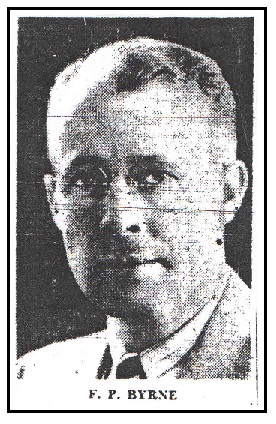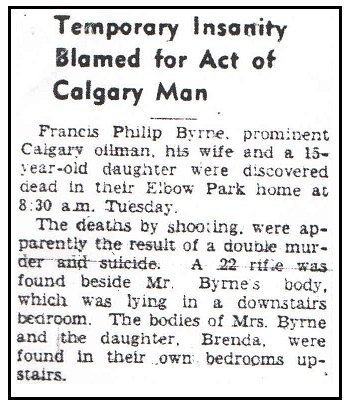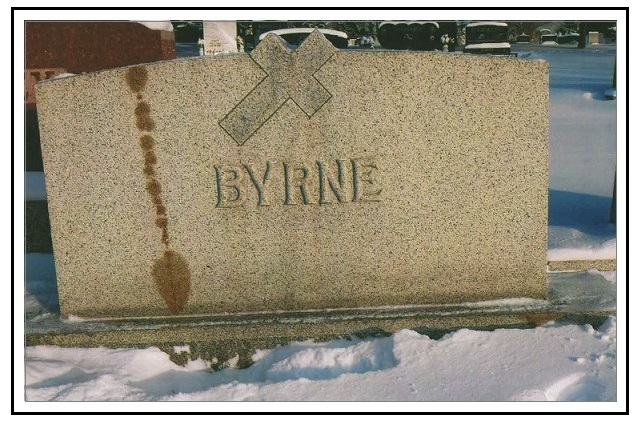True and Fascinating Canadian History
The Mystery of the Mountie
And A Life Marred by Murder
by J. J. Healy

Down through time and history, people of all cultures and in every community have looked to those in higher authority or position of power to make decisions to settle disputes. From the days of yore, the role of the judge to solve problems cannot be underestimated. In the main, the judge is called to dispense justice. But, if it were only that simple.
Reaching back to early biblical days, one can study the classic dispute [1 Kings 3:16-28] to measure one man's noble attempt to dispense justice. The manner in which the King resolved the dispute and the qualities of his character may also provide police officer's with an important lesson about life and about the police officer's relationship with people -- most especially compassion for those in trouble.
In the King Solomon case, two woman fought their claim over the legitimate motherhood of a baby. The dispute reached the ear of King Solomon who called for the baby and the two women to be brought before him. Only one woman would leave his chambers with the baby.
The King knew that the reputation of each woman who stood before him was questionable. Their dishonesty in other matters weighed on his mind. He winced at the dilemma -- who was the real mother? On that day two thousand years ago, the imbalance in the King's eventual decision would weigh unevenly with the two woman like the symbollic scales which represent justice disrobed even to this day.

King Solomon called for a sword. He pronounced his intent to slice the baby into two, thus seemingly to satisfy that each woman got half. Instead of violence to the baby, one woman immediately protested that it ought to live. She cried out, '...let the other have the baby instead of bringing the sword swiftly into effect'.
In his wisdom, King Solomon sided with the woman who preferred that the baby would live rather than have himself employ the sword. Justice prevailed. But, his decision demonstrated far, far more than justice alone. The subtle meaning in the King's story actually centered on two traits of his character; compassion and mercy towards others. The two women concluded the King had wrapped compassion and mercy around his final decision.
The story is ageless. But, it is told in a simple way to ignite emotions which may lead to charitable responses in each of us. Police officers, more than anyone, witness tragic events every day and the nature of the job can easily lead one to become cynical. But, it is important also to keep one's daily life in perspective -- the benefits received in the police profession far outweigh any minor irritations one meets during the work day and, there comes a time when even the toughest criminal will respond to small acts of kindness at the hand of a police officer.
In the case of King Solomon, one must consider his whole character. He was a King and a judge and he possessed great riches and power. In society, he was more advantaged than most people. Yet, he had also been infused with great wisdom by God which gave him clear insights into the weaknesses of his people. Thus, he was no fool. His wisdom gave him the ability to cleverly design a test which clearly identified the true mother of the baby. In the end, he made a lasting impression on her. Compassion and mercy accompanied the judicial outcome.

And, it is truly compassion and mercy which will become required of all of us in the 'Mystery of the Mountie and A Life Marred By Murder'.
Reg.#8438, Francis Philip Byrne was born around 1900. His first job was a short stint with a broker's firm in his home town of Montreal, QC. As a young man, he travelled west and joined the Alberta Provincial Police. He then joined the Royal North West Mounted Police in 1919 and he was posted to Alberta. He had a slim brush with Service Court but it was of no significance.
But, Constable Byrne was restless as a police officer so he 'Purchased his Discharge' from the RCMP in 1921 after three years of service. Constable Byrne left the RCMP and he turned to a career in Calgary's up and coming oil business.
For many, many years Mr. Byrne's career was marked by success. By 1936, he had become a founding member and Vice-President of Anglo Canadian Oil Co. Ltd which had drilling operations throughout Alberta. A few years later, he had become a Director of the Company and he had also branched out to head his own company, Francis P. Byrne Ltd.
In the meantime, Mr. Byrne's influence had expanded into several other Alberta oil investments; Twin Valley Oil Co. Ltd., Petroleum Investments Ltd., Firestone Petroleum Ltd and many more. There were very few oil companies in Alberta that did not come under Byrne's span of control. The Byrne family name in Alberta was bigger than oil itself. By the mid 1940's Mr. F. P. Byrne was considered among the very top and most prominent of business leaders in Calgary. No one suspected that Mr. Byrne was a troubled man with alot on his mind.

In mid June, 1945 the Byrne family and his business world collapsed. His wife and his young daughter were found in their home murdered and Mr. Byrne had committed suicide. A rifle was found beside his body along with a suicide note.
After their investigation, the police ruled that Mr. Byrne had shot his wife and daughter while temporarily insane and then he committed suicide. It was further disclosed that Mr. Byrne had recently suffered a mental collapse and that he had been under professional medical care.
Unquestionably, the whole Byrne affair was tragic. His wife and his daughter did not deserve to die under such circumstances. They will forever deserve sympathy. Whether or not they recognized that Mr. Byrne was sick will never be known. And, the wider Bryne family were also all affected by the tragedy. Questions will always remain about the reasons for Mr. Byrne to commit such crimes within his family. But, perhaps Constable Bryne left police officers with a lesson about contemporary life.
First, the Byrne case highlights the potential vunerability of many people in society especially those suffering from mental illness. Police officers too work under stressful conditions including critical incidents. Putting on a brave face is not a solution. Education is important. People in distress need to seek help. That's the first step. Then, it is helpful for everyone to be mindful of the symptoms of those in stressful situations. And, after all these years since the Byrne deaths, Canadians are beginning to talk more and more substantively about suicide and the imperative for good mental health.

Suicide hit very close to our Troop when it was disclosed last week that a Troopmate died [November 24, 2013] by his own hand in Kamloops, BC. On the one side, our Troopmate's death was linked to an onset of dementia. On the other side, police officers, at times, can also be unusually critical of each other. We all need to ease up.
Another important aspect about the topic of suicide is that police officers need to examine their own character and the traits that comprise the police personality. Traditionally, admirable traits of the police officer include; dependability, active decision making, good work habits, leadership, operational experience and the like. But, there is a need to include other qualities such as compassion and to make it an equally important key to the police officer's full maturity.
And finally this reminder from the Canadian judiciary which hit directly on the topic of compassion. In a recent newspaper article, Waterloo, Ontario Court Justice Colin Westman was critical of Justice Minister MacKay who had earlier suggested that poor criminals ought to sell their belongings to pay the government's mandatory victim fines.
Justice Westman said, '...I think someone has to remind the minister there are broken people here who don't have anything to give. It's a bully mentality. It's kicking people when they are down. The people we are dealing with, believe me, a high portion of them are just broken souls'. p. 1.
One can admire Justice Westman for his admonishment of the Minister but at the same time, his compassion towards others might also apply as a reminder to all police officers -- myself included. Police officers on the street will always be assured of admiration from the wider community whenever they display human attributes towards others such as; sympathy, respect, politeness, compassion and gentleness.
It is a lesson about life as old as King Solomon.
Mr. Byrne and his family are buried in Calgary, AB. R. I. P.

Source: The Ottawa Citizen. Wednesday. December 18, 2013. p.1.
Reporting from the Fort,
J. J. Healy
December 19, 2013





